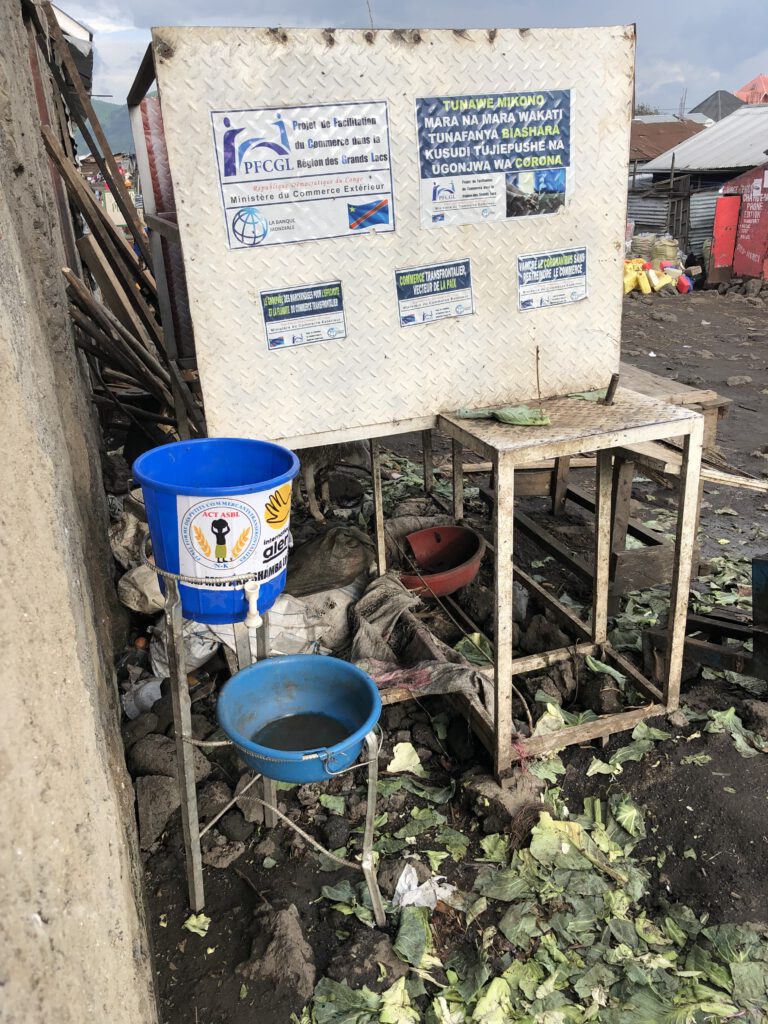There are no devices to measure the temperature at any of the markets entry points. In short, the market administration is making itself invisible. It cannot organize the protection of the health of the merchants who provide the important income in terms of royalties. There is no sense of accountability, as one should say.
Covid-19 tests are not compulsory. It is not a requirement to access the market; it is a matter of personal discretion of a visitor. Since the state does not require a test within the country, those who do not cross the border are not even interested in it. However, a trader who bought tomatoes in Rwanda said she had done the rapid test in Rwanda, where it was cheaper than in Congo: „I paid the equivalent of $5, whereas back home, the same test costs $10 to $20.” But, as she continued „I can't keep on testing, because I have the impression that putting the stick in my nose can make me sick, and even affect my brain; I felt drunk for a few moments. It was not good at all.“
In Rwanda, on the other hand, cross-border traders, like other people commuting between Rubavu and Goma, have to conduct a rapid test every second week. These tests cannot be ignored, because the result of the test determines whether they can cross the border to the DRC. It is uncompromisable. Nevertheless, the Rwandans themselves complain about the cost and inconvenience of the test. “We're tired,” says a Rwandan shop-keeper, visibly annoyed. “I am thinking of settling permanently in Goma,” she concluded.
Customers and vendors alike are visibly tired of wearing masks. Most admit to putting them in their pockets or purses rather than over their faces. “I find it suffocating,” says one woman. “In any case, everything can kill, the disease and the masks,” adds another. “God alone protects us” said again another. As if to conclude “What does it matter!” The Covid-19 pandemic, which many in this market see as a stigma, is regarded to be over such that protection measures are seen as artificial and superfluous. It is an affront to God, who has already warded off the disease here. Those who apply themselves to it are the „Europeanized“, the non-poor! Basically, few people believe in this disease in this environment, the home of the low-income earners with a rather average level of education.
If we consider them all, these references to God, this lassitude toward protection measures and Covid-19 testing reflects a certain lack of awareness, if not a lack of awareness of the usefulness of the response to the pandemic. The tests are not considered to be a requirement. It is a rather a burden that these shopkeepers would like to get rid of quickly. The PCR test is not affordable. It is expensive, costing up to $40, which for some merchants amounts to their entire business capital.
However, there are a few testimonies from merchants who have been victims of Covid-19, either because they have suffered from it or because they have lost a close relative or friend. But this is not enough to convince them of the seriousness of the threat. The collective imagination is that the pandemic is, if not an artifice, at least a plot, a plot that has already been averted.
